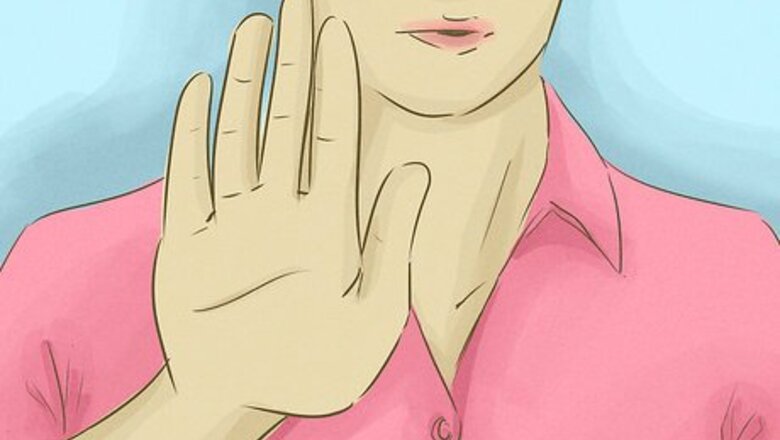
views
Reacting to Name-Calling
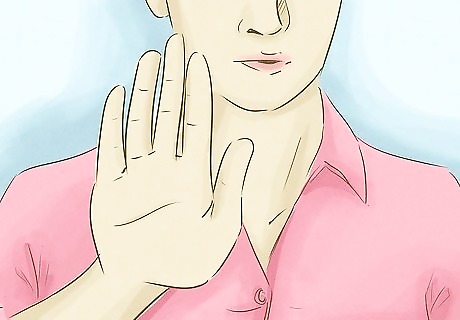
Tell the bully to stop calling you names. Try not to engage in an argument or get too emotional, just tell the person what he or she is doing and that it needs to stop. A bully may try to make it seem like the name he or she is calling you is some sort of nickname and it is harmless. It is not harmless if it hurts your feeling. No one has the right to give you hurtful nicknames or dehumanize you. For example, a bully says "Hey, big head, you're walking too slow!" You can respond by exercising assertiveness and say "My name is Carlton. I'd appreciate it if you called me by my name." Do not allow the bully to dismiss your request. You have the right to ask him or her to only call you by the name you go by. That is not unreasonable or overreactive on your part. You are not being too sensitive to not want to be called names.
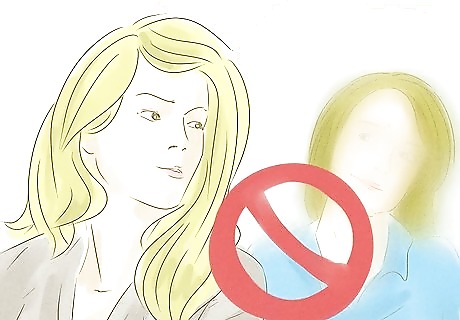
Avoid the person as much as possible. In most cases, you do not need to interact with the bully unless you are in class or an activity with him or her. Making yourself less available to be picked on can make the bully lose interest very fast. Even if you can’t completely stay away from this person, walking in a group or sitting near the front in your classes may deter bullying behavior. Avoidance can work for cyberbullying, too. If a person is calling you names online, it is smart to document any behavior by printing the evidence or taking a screenshot. Then, block the bully from all your profiles so that you no longer have to make contact with the person.
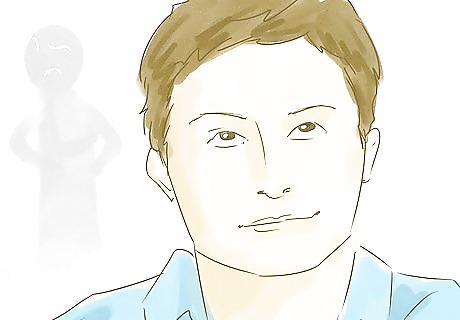
Ignore the insult. Don’t assume just because the bully says you are stupid that anyone believes that. If you know that is simply not true, everyone else probably does to. Often times a bully is going to pick on the most obvious thing about you that he or she thinks will bother you. Instead of taking it as an insult recognize it for what it is. For example if the bully is calling you four eyes, brush it off since all he or she is really saying is that you happen to wear glasses. It is a fact you wear them and really nothing to be bothered by. Shrug it off and walk away. Doing this immediately takes the power away from the bully.
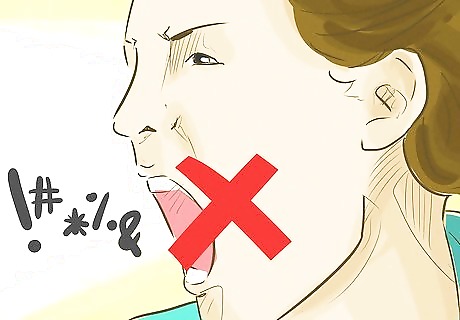
Control your anger. Sadly, if you react in anger, the bully will probably continue and you may also end up in trouble yourself. The bully wants to push you to react, either out of anger or sadness. The reaction is the reward for all the negative behavior so avoid that if at all possible. Try these strategies to keep anger at bay. Count to 10 slowly in your head. Breathe deeply—in through your nose and out through your mouth. Repeat to yourself “I am the picture of calm” over and over again. Imagine something funny happening to the bully, like a giant container of slime being poured over his or her head. Try not to laugh, just think this in your head to fend off getting mad.
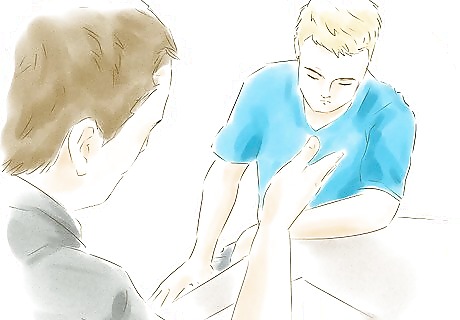
Involve someone else like a teacher or coach. Telling an adult and asking for help is important in cases where you have tried to make it stop and it doesn’t. This is also extremely important if you feel like you are in danger. Telling just one adult should be enough. If it doesn’t seem to change things, tell someone else until you get the help you need. You can simply describe the behavior: "Jodie has been calling me rude names during practice. It's embarrassing."

Recognize that there's strength in numbers. If a bully is calling you names, you can help eliminate the behavior by finding support. Bullying behavior tends to decrease when other kids do not support the bully. Ask your friends to walk with you to classes. Request that they ignore any name-calling, or stand up for you. If they don't play into the behavior by laughing or paying attention, the bullying may stop. Bullies tend to target people who are by themselves.
Helping Someone Who is Being Bullied
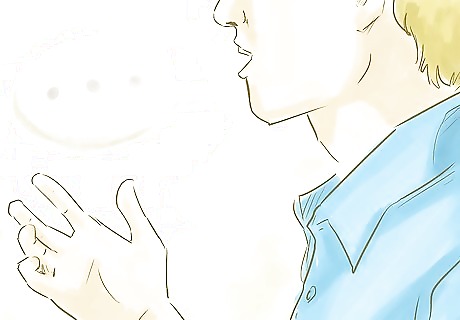
Learn how to spot the signs of a person who is being called names. The signs of someone being called names may include sudden social isolation, changes in school habits or even lowered self-esteem. Remember no matter how silly a name is, if it is hurting the person being called that name it is not OK and not a joke. Ignoring name-calling can lead the abused into depression and in some cases even to making a suicide attempt.
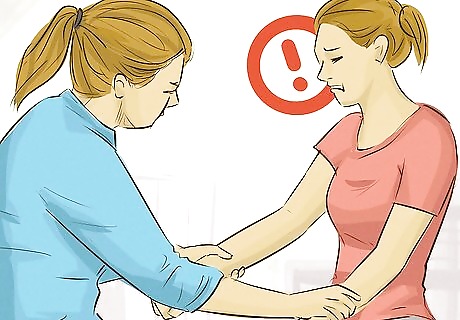
Call out the bully. Some people who are bullied feel like no one cares or even notices their pain. Seeing another person stand up and take notice will help the person not feel isolated and like he or she needs to keep those painful feelings secret. Children who are bullied and feel hopeless may make attempts to handle the situation on their own that have dire consequences like suicide. Ignoring any name-calling you witness could make the victim feel alone in the bullying and result in serious consequences. Something as simple as “Hey, why don’t you leave him/her alone?” should do the job. It calls attention to the misconduct and tells the bully this person has support.
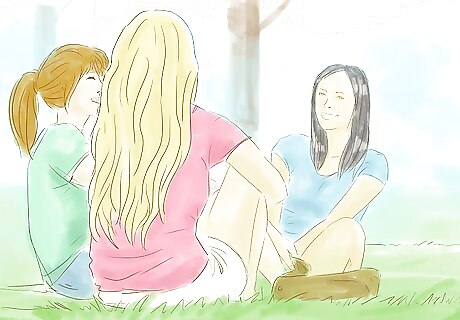
Encourage children to talk to someone. No one needs to feel like they are weak for talking about name calling or being too sensitive. If a child comes to you to talk about a bully calling them names, listen and do not say that the words shouldn’t hurt, which diminishes his or her feelings. It is not up to you to tell anyone else how something should make him feel. The child wouldn’t come to you to talk if it wasn’t hurtful. Reinforce that each child has the right to feel safe and respected. Model this behavior by not only encouraging the kids to talk about bullying but also by taking action to resolve the issue. You can say "If you're being picked on at school, it's important for you to tell someone. You won't get in trouble for telling. In fact, telling someone is really brave."

Counteract bullying at the school or playground. Sometimes the biggest difference in a bully situation is made on the playground with the peer group. Positive peer pressure can go a long way to create a zero tolerance space for bullying. Encourage other students to seek out children who appear lonely and offer friendship. Having even one new friend may make a bully situation seem less serious to the person being called names. For example, you might tell a reasonably well-liked child to team up with a child who is being bullied for an activity. When others see this person interacting with the victim, they may be more likely to befriend him or her, too.

Help the child restore confidence. Being called names can do a lot to break down anyone’s self-esteem. Having a source of support in you will do wonders, but it also might help to show the child that he or she is worthy and valuable in many ways. You can encourage the child to join in activities they excel in to give them plenty of chances for positive feedback. Recognize their strengths in front of peers and show them they have a lot to be proud of.
Understanding Bullies
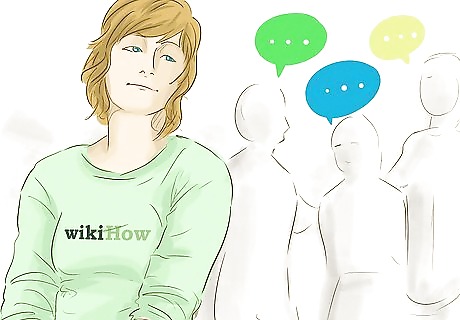
Know that bullying doesn’t have to be physical like hitting or kicking. Bullying can be name-calling, encouraging others to not like someone by spreading rumors or even things posted online that are hurtful. Many people assume there really isn’t any harm of being bullied unless it gets physical and this simply is not true. It can be just as hurtful if not more so to be bullied by emotional abuse. Any threat needs to be taken seriously, it is not up to you to decide if the bully will carry out the threat. If he or she says harm will come to you take that as a threat and get help.

Understand that bullies pick on those they perceive as weaker. You can change this by walking with your chin up and shoulders back. Act brave, even if you don’t always feel that way. Being weak isn’t always about size or strength either—it can be something as simple as finding a classmate that is often alone. A bully usually does not want a lot of witnesses so just making sure you have friends around throughout the day can drive away a bully. A bully may also pick on someone they see as an easy target if there is a low blow they can make fun of. Instead of reacting with sadness or anger towards the insults, you can either ignore the put down or if it is made as a joke laugh along. The bully will probably leave you alone if you aren’t allowing him or her to make you the punchline.
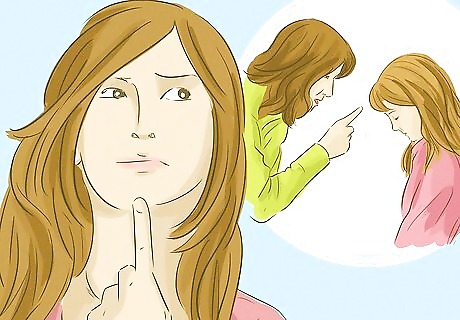
Realize that some bullies are bullied at home. Bullies are often abused at home. Then, they leave the home environment and take out their anger and frustration out on someone weaker like they see modeled at home. A bully taking things to a hurtful level may be the only way he or she knows how to get attention for the abuse he or she is suffering from. Being aware of possible abuse is important if adults are considering involving the parents of the bully in the solution as this can be dangerous for the bully. All parties involved deserve to be safe and secure in their environment, this includes any child that is being called names and the bully as well. Giving the bully a safe place to express emotions is just as important as being open to talk to the victims.

Know that being the victim of bullying does not make it your fault. For the most part, you are being bullied for a reason that is much bigger than you are. Bullies act out for attention, out of fear or even low self-esteem. Bullies act out to gain power over someone who they see as being weak, often because they lack the self-esteem or personal power to be secure on their own. You just happen to be a victim that was available and perhaps initially gave the bully the reaction he or she was searching for.











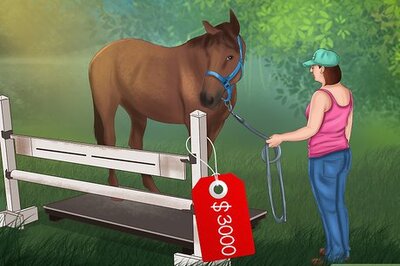





Comments
0 comment